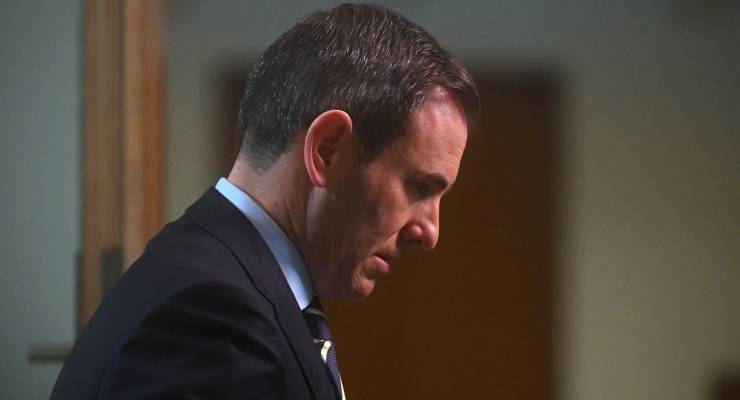
Economists say it’s possible tomorrow’s federal budget could provide meaningful cost-of-living relief without adding to inflation.
Treasurer Jim Chalmers has said a $14.6 billion cost-of-living package will be the centrepiece of the budget, helping households pay their energy bills — without making inflation worse.
“What we’ve tried to do with this $14.6 billion cost-of-living package is calibrated in a way that doesn’t add to inflation,” Chalmers told ABC Radio on Monday morning.
“We’re conscious as we work through the various options which ones do and don’t add to the inflation forecasts in the budget.”
The package will include energy bill relief for 5.5 million households, as well as measures to help pay for medicines and other essential goods.
Two economists who spoke to Crikey said it was possible Chalmers could pull off cost-of-living relief without increasing inflation.
“I think it’s appropriately targeted,” senior lecturer in economics at RMIT Leonora Risse said.
“We’re talking about a scenario where people’s income isn’t changing, but their essential costs are changing — that means they’re forced to make trade-offs, to forgo electricity so that they can pay the rent, groceries or medical fees.
“I think it is quite justified because of the extreme cost-of-living pressures at the moment.”
Risse compared this kind of targeted relief with broader packages, such as the fuel tax subsidy brought in at the former government’s last budget.
“That type of subsidy is so broad it would have gone to some consumers who were going to spend money on petrol anyway, and weren’t actually financially strained,” she said.
“That’s an example of where it could have been inflationary.”
Monash University economics lecturer Isaac Gross said it was likely Tuesday’s budget would “smooth out the path for inflation”, lowering it in the short term while possibly adding to it in a few years’ time.
“While some measures the government has chosen might push up inflation in the medium term, they’re taking a lot of other measures aimed at lowering inflation,” he said.
“So a lot of infrastructure projects being postponed or delayed, for example. That’s part of their efforts to reduce inflation.
“These cost-of-living measures are going to be targeted, so they’re not going to apply across the board. I don’t think they’re going to have a broad impact on inflation.”
Risse said there were more things that could be done to curb inflation, including incentivising households to save money by increasing interest rates on savings accounts.
“When we look at the ripple effect of cash rate increases, it’s not just mortgage holders who are expected to respond by spending less — it’s also across the economy, encouraging people to save,” she said.
“If we’re in a situation where we’re going to blame inflation on the lowest income earners of society, then public policy is really not well designed.”
Opposition finance spokeswoman Jane Hume told ABC Radio on Monday that a “genuine cost-of-living budget” would rein in spending as getting inflation down was the “only policy” that would provide relief to households.
She was not convinced Chalmers’ budget would bring inflation down.
“What they said is that [the government’s] spending won’t add to inflation,” Hume said.
“Well, that is yet to be seen. But it certainly isn’t bringing inflation down.”
Is it possible to ease the cost-of-living burden without a boost in inflation? Let us know your thoughts by writing to letters@crikey.com.au. Please include your full name to be considered for publication. We reserve the right to edit for length and clarity.








Obviously I am neither an economist nor a politician but what I don’t understand is why the government, using our taxes, has to compensate people for high energy bills while the energy companies continue to make huge profits, again at our expense.
Instead of throwing money at a short term fix, which ultimately is wasted money, why not fix the fundamental problem of a rampant energy market that only recognises profit as its end goal? Privatisation means we all pay a cigar-chomping CEO and his shareholder mates to live the life of Reilly while some of us go cold and hungry.
Put a cap on profit-taking, accompanied by a cap on what consumers are obliged to pay for their power, and tell the energy companies to suck it up, just like everybody else.
That’s what I would do if I were Queen of the World. Why can’t Albo and Jim?
Where do you think the donations to both sides of Politics are coming from?……………..
One measure which would dramatically reduce power bills and at the same time make Australian businesses competitive would be to introduce a Gas Reservation Policy Australia-wide.
It works a treat in WA – and despite the howls about the world ending coming from the multinational gas cartel, they are still happy to pump our gas at a tenth of the price they pay in Norway.
It’s easy to understand if you’re prepared to consider the possibility that Labor is here to take money from the hands of paupers and funnel it into a massive pipeline geysering away in the top end of town, much like the LNP.
Don’t ask me why. I wouldn’t make this up; it’s too depressing to imagine. But at this point I’ve ruled out other possibilities.
But Labor are now neoliberal scum. Burn the scum.
Well said GoatGirl. Another idea would be to stop the BS about market efficiency and the con job done when justifying the sale of public utilities to private corporations. The fallacy of market efficiency does not stand up to scrutiny. Our power bills have constantly gone up, government subsidies continue to rise as do the profits of the energy companies.
Capitalists hate this one life hack !
Reduce your own personal consumption and contribute to lower aggregate demand:
I thought inflation was being caused by the huge profits being generated by the private sector.
It is! At least two thirds of it, anyway. But that’s ok. That’s how neoliberal corporate capitalism is designed to work.
This inflation is not caused by excess demand. Properly targeted assistance with living costs might just start to stop the dog chasing its tail with no impact on demand. What is required here is a circuit breaker.
Who to turn to for advice? There are plenty of people but Minister for Banks Jane Hume is not one of them.
You’d think that shame would stop them popping their heads up…………..
………unfortunately, that’s a scarce commodity in the LNP.
Shame is not in the Libs DNA
True, for someone no one cares to listen to Hume spends a lot of time mouthing off negatively – why, she’s a nobody really.
Jane H.ume would no know her arse from her elbow, having caused inflation with poorly targeted cash splurges. There is a lot of gouging in the economy. Oil is at pre Ukraine prices, but fuel is still extortionate..